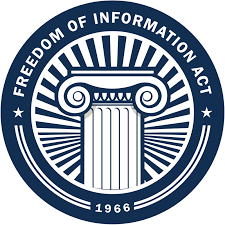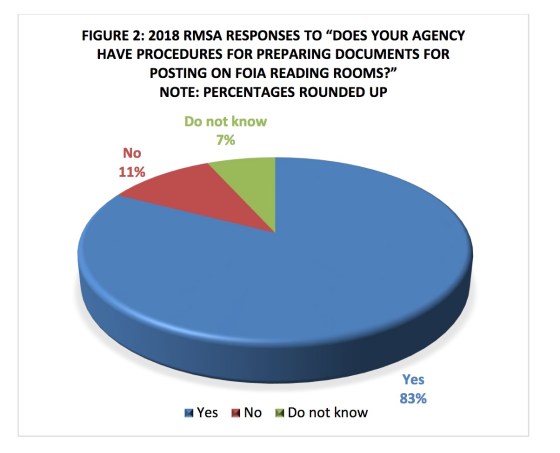 Yesterday, the United States Freedom of Information Act Advisory Committee met at the National Archives in Washington and approved a series of recommendations that would, if implemented, dramatically improve public access to public information. And in May, it will consider recommending to Congress that it “enact a statutory foundation for disclosure and access for the federal legislative and judicial branches,” expanding transparency and accountability to support agencies and courts.
Yesterday, the United States Freedom of Information Act Advisory Committee met at the National Archives in Washington and approved a series of recommendations that would, if implemented, dramatically improve public access to public information. And in May, it will consider recommending to Congress that it “enact a statutory foundation for disclosure and access for the federal legislative and judicial branches,” expanding transparency and accountability to support agencies and courts.
Good morning from the @USNatArchives, where I’m attending the US FOIA Advisory Committee public meeting.@dferriero is listing US government #SunshineWeek activities: https://t.co/ZQbjSsz4Ji #OpenGov pic.twitter.com/vO6z8lBmWN— Alex Howard (@digiphile) March 5, 2020
Video and materials from the meeting are already online, as with past meetings of the advisory committee, including
- Agenda
- Federal Register Notice
- Handout – Time/Volume Subcommittee Recommendations to the FOIA Advisory Committee
- Handout – Records Management Subcommittee Report & Recommendations to the FOIA Advisory Committee
- Handout – Vision Subcommittee Recommendations to the FOIA Advisory Committee(Draft Revised Feb 28, 2020)
- Handout – Vision Subcommittee Recommendations to the FOIA Advisory Committee – Revised Recommendation C(Draft Revised Mar 5, 2020)
- Presentation Slides – Assessing Freedom of Information Act Compliance through the 2018 Records Management Self-Assessmentby Kirsten B. Mitchell
- Reference Document – Assessing FOIA Compliance through the 2018 National Archives and Records Administration’s Records Management Self-Assessment(Feb 11, 2020)
While the meeting mostly consisted of the committee considering and voting to approve recommendations on time/volume and records management, one notable finding from the federal FOIA ombudsman learned from the 2018 “records management self-assessment” that 11% of agencies don’t have procedures to post records on FOIA reading rooms.

24 years after Congress passed a law — the e-FOIA Act, which required agencies to maintain online FOIA reading rooms, NARA has found that 11% of agencies still don’t have procedures to publish public records on them, & 7% don’t know if they do. That’s astonishing. It’s also congruent with past research: the National Security Archive found a 40% compliance rate on E-FOIA in 2015.
That isn’t to say that agencies don’t know how to publish records online, as open data pages and APIs show, but that FOIA remains its own silo, apart from Web teams.
In that light, it is fantastic news to see that committee will recommend harmonizing FOIA policy and programs with open government data and policy teams. Doing so would make FOIA work better.
In its report on records management, the Committee recommended “that both DOJ/OIP and NARA/OGIS should work to align FOIA policy and FERMI with the Administration’s overall Federal Data Strategy,27 including as set out in the President’s Management Agenda28 and Reform Plan.29 In particular, we believe it will be increasingly important that Federal staff understand that federally created data in numeric form should be included within FOIA and Federal records management workflows. Aligning these policies will in our view facilitate the proactive release of Federal data, expand on the available catalog of data on data.gov, standardize the release of agency data in open standards and machine-readable formats, and enable better public use of agency-created data from across the Federal government.”
Good idea!
The committee also recommends “that the Archivist of the United States request NARA/OGIS to work together with DOJ/OIP to encourage agencies to release FOIA documents to the public on their FOIA Websites, and in FOIA portals in open, machine-readable and machine-actionable formats, to the extent feasible.”
Phenomenal.
Finally, the Vision subcommittee is going to discuss its revised recommendations on May 1, after they ran out of time yesterday.
That public meeting may be more interesting than usual, because the US FOIA Advisory Committee will consider a recommendation to Congress to expand the FOIA to “include a statutory foundation for disclosure and access for the federal legislative and judicial branches.”
Specifically, they will discuss whether “the law should establish clear proactive disclosure requirements for federal legislative and judicial bodies and detail a process for each branch by which individuals can request records from these federal bodies. This is not to suggest that the current system in place should simply be extended to each branch. This would require the establishment of new requirements crafted specifically to each branch in consideration of the types or records handled and addressing the concerns associated with their potential disclosure.”
Why?
“While often these materials are made available to the public, that access is not universal. And when the public encounters barriers to access there is no official process for requests to be consistently processed. The FOIA statute should establish some baseline of disclosure and means for the public to seek a remedy when they believe that records are absent from that baseline.”
It’s a strong recommendation that would bring the United States closer to the standard set by democracies around the world.
Congress should give it the serious consideration it deserves, whether or not the FOIA Advisory Committee ultimately votes to adopt it.
